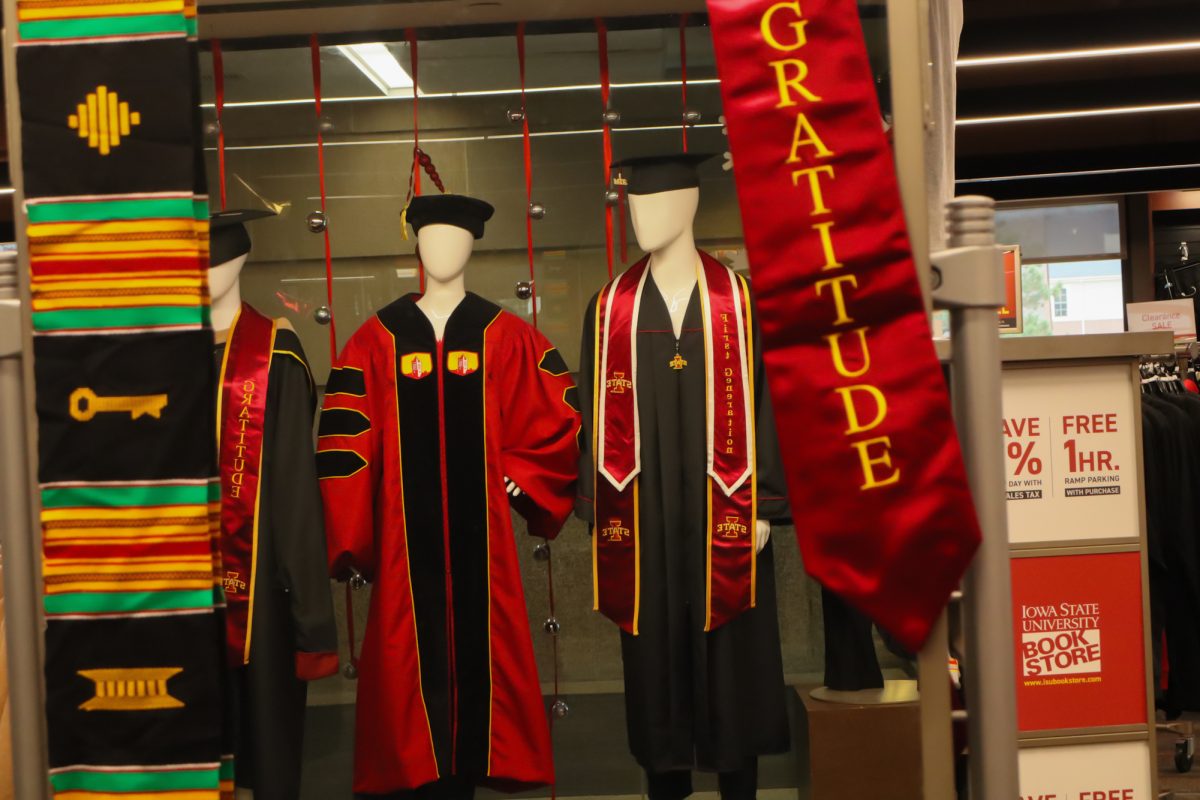If you hide it, they will come
April 19, 2005
An update of traditional scavenger hunts has the entire world in a search for treasure.
Geocaching provides an entertaining use of the Global Positioning System by allowing users to play a worldwide game of treasure hunt.
Caches, or hiding places for storing provisions, are placed by individuals and corporations for others to find. When a cache is found, there are only a few simple rules to follow: Take something from the cache, leave something in return and write about it in the logbook.
The logbook contains a history of the cache, information about the area or jokes, and it is usually placed with the cache. There are numerous Web sites that allow users to announce and record the caches that have been found and how many times they are found.
“The fun thing is leaving stuff and taking stuff,” said Jerry Keys, environmental education coordinator for the Story County Conservation Board.
A cache can contain a number of different things. It could hold only the logbook, but it can also hold things like maps, pictures and jewelry. Illegal items and weapons are not good treasures, and food attracts animals, so it is also not recommended for hiding, according to the Web site Geocaching.com.
“It should be family-friendly things left in the caches,” Keys said. “The main thing is to put it back the way you found it.”
Andrew Carney, junior in agricultural engineering, has developed an interest in geocaching.
“Last summer, I used GPS for work, so that’s when I first learned about the system,” he said. “I was interested in it, and so I got a GPS unit for Christmas.”
Keys said the best thing for him about geocaching is giving him a reason to enjoy the outdoors.
“Like most of society, I need excuses to get outside,” he said. “Geocaching is a personal hobby of mine.”
Carney said he has not started geocaching — yet.
“I haven’t done any geocaching yet, but I’ve definitely looked into it,” he said.
GPS was developed by the U.S. Department of Defense to find locations all over the world by bouncing signals off satellites. GPS devices find locations with latitude and longitude coordinates that can be applied to built-in maps and compasses, according to the geocaching Web site.
Keys said Story County is full of caches waiting to be found.
“Story County and the Ames area are quite saturated [with caches],” he said. “McFarland Park has three caches; it’s a nice place to go.”
Keys said one of the things to keep in mind when going on a hunt is to stay on the trails in the park.
“People are wandering off of the trails because they want to follow the direct compass directions,” he said. “People are creating new trails. When this happens, we are forced to pull out the cache to preserve the original trails.”
He created a geocaching permit through the Story County Conservation Board for people who want to place caches anywhere in Story County. This helps keep track of all of the caches, he said.
Keys said he also helps promote geocaching in Iowa.
“We’re showing other counties what we have developed,” he said. “We’re promoting it around the state to welcome geocaching into more parks.”
The game of geocaching was developed in 2000 when the Clinton administration decided to turn off Selective Availability, which scrambled the signals for civilians, according to the Web site. After that, the accuracy range of GPS for civilian use improved from 100 meters in diameter to 10 meters, which allows users to get even closer to desired destinations.
A GPS device can cost anywhere from $100 to $1,000, depending on the number of features and extra capabilities, like voice navigation. They are available at boat supply, electronics and camping stores and also online.






